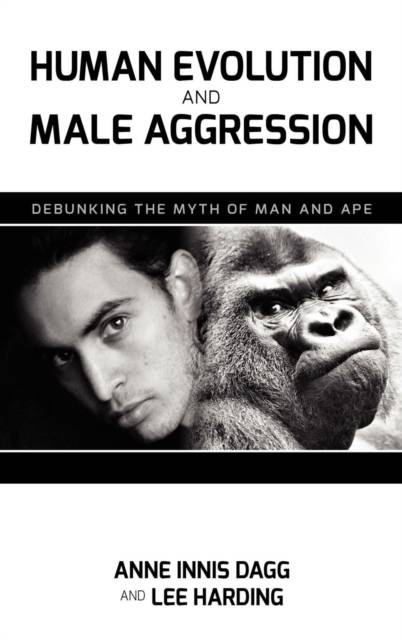
Bedankt voor het vertrouwen het afgelopen jaar! Om jou te bedanken bieden we GRATIS verzending (in België) aan op alles gedurende de hele maand januari.
- Afhalen na 1 uur in een winkel met voorraad
- Gratis thuislevering in België
- Ruim aanbod met 7 miljoen producten
Bedankt voor het vertrouwen het afgelopen jaar! Om jou te bedanken bieden we GRATIS verzending (in België) aan op alles gedurende de hele maand januari.
- Afhalen na 1 uur in een winkel met voorraad
- Gratis thuislevering in België
- Ruim aanbod met 7 miljoen producten
Zoeken
Human Evolution and Male Aggression
Debunking the Myth of Man and Ape
Anne Innis Dagg, Lee E Harding
Hardcover | Engels
€ 149,45
+ 298 punten
Omschrijving
Popular and scientific literature is still permeated with male aggression as a product of long evolution. The fact that violent aggression appears in the archeological records less than half as long ago as artistic expression should give pause to any student of human behavior. Humans are nothing like apes--chimpanzees, bonobos, gorillas, or orangutans which developed their mating systems independently from humans, and from each other. Chimpanzees have a promiscuous mating system, bonobos are completely hedonistic, gorillas have a harem system, and orangutans are essentially solitary. In those species, males may compete with each other, so aggression can occur. Gibbons would be a better model for human behavior because they live in nuclear families (several ages of dependant offspring living with adults for many years) and are never aggressive toward each other. Nuclear families are intimately tied to peaceful living because, once established, there is no need for aggression, except for defence of territory against outsiders. Although male aggression is a sad fact of modern society, factors other than genetic heritage should be examined to explain this. This book reviews the recent advances in the knowledge of human evolution that have greatly changed our conceptions. It has been uncovered that humans are nothing like chimpanzees, and far less like baboons. Early humans never knuckle-walked, left the jungle for the savannah where they roamed widely in dispersed populations, and for more than four million years lived in small groups or relatively peaceable societies with fathers raising children and joining with other adult males for community projects. Human Evolution and Male Aggression dispels misconceptions based on flawed interpretations of biology and behavior. It tells the compelling story of the human male's peaceful past. It summarizes recent advances in understanding of bones, brains, hormones, and genetics that reveals humans for who they are. In reviewing the behavior of other primate males and their relationship to females and infants, it sets the stage for a new paradigm of male behaviour--one in which aggression, though possible, is suppressed most of the time in favor of affiliative behaviors that benefit females, infants, and society as a whole. Encompassing topics relevant to biological and social sciences, this book will be of interest to students of primatology, evolutionary biology, anthropology, and human behaviour.
Specificaties
Betrokkenen
- Auteur(s):
- Uitgeverij:
Inhoud
- Aantal bladzijden:
- 276
- Taal:
- Engels
Eigenschappen
- Productcode (EAN):
- 9781604978216
- Verschijningsdatum:
- 28/09/2012
- Uitvoering:
- Hardcover
- Formaat:
- Genaaid
- Afmetingen:
- 152 mm x 229 mm
- Gewicht:
- 576 g

Alleen bij Standaard Boekhandel
+ 298 punten op je klantenkaart van Standaard Boekhandel
Beoordelingen
We publiceren alleen reviews die voldoen aan de voorwaarden voor reviews. Bekijk onze voorwaarden voor reviews.












